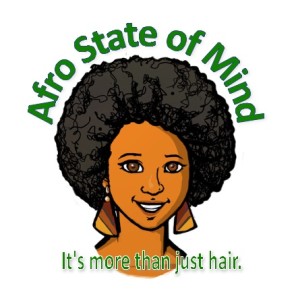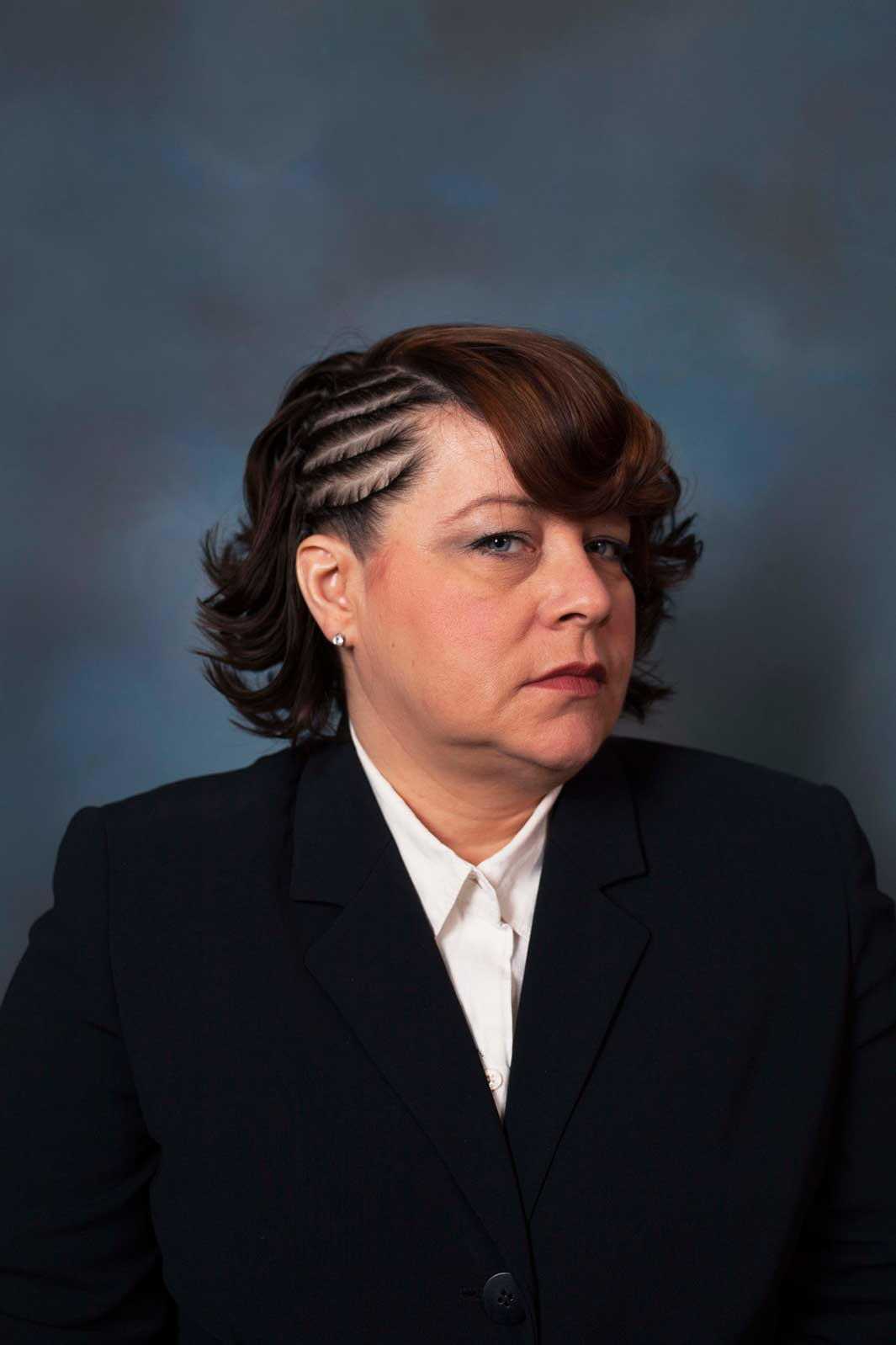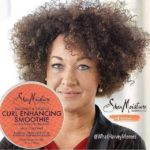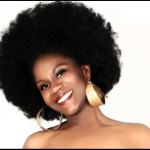White Women + Black Hair = Progress?
Recently there have been a number of images circulating in which corporate White women are featured wearing business suits and hairstyles typically seen only on Black women. These images are part of an exhibit, which seeks to build bridges between White and Black women. The photographer is a young Black woman by the name of Endia Beal, who was inspired after learning that many of the White males in her predominantly White program at Yale were very curious about her big red Afro. According to madamenoire.com:
A big red afro was her style of choice at the time and one coworker tipped her off to a rumor that had been going on around the office about her male coworkers wanting to feel her hair. She allowed them to and then recorded their reactions on camera a week later.
According to Beal,
“I wanted people that had a certain idea of what you’re supposed to look like in the workspace, because it would be a challenge for them to understand what I experienced in that space.”
Ok, fair enough.
However, I initially questioned the effectiveness of these types of displays for a number of reasons. They remind me of when White guys in high school embraced hip hop culture and reveled in dressing up in “Thug Life” gear, adopting Black mannerisms and cultural expressions. Several years later those rebels without a cause usually traded in their Black costumes for clothes, speech patterns and preferences more in line with being White people in America.
Sadly, their temporary frolic into “Black Like Me” land did little to temper their ultimate acceptance and embrace of White privilege…
You Can Touch My Hair (It Doesn’t Bite)
Remember the exhibit entitled You Can Touch My Hair? It took place in New York City’s Union Square a few months ago and was comprised of Black women wearing various types of natural hairstyles holding signs that read “You Can Touch My Hair.” The idea was to allow people who are not familiar with Black hair the opportunity to touch it without fear.
The exhibit was not without controversy as many felt it reduced Black women to objects that could be handled much the way one would handle an animal at a petting zoo or museum. According to Antonia Opiah, the originator of the exhibit, the idea was to bring together groups of people who ordinarily do not get to communicate. Speaking about the event, Opiah said:
You Can Touch My Hair wasn’t about hair. Hair was an entry point into a larger conversation. Hair was the vulnerability that we offered up, a bargaining chip we hoped would get us what we really want — one brick on the bridge we need to really integrate as Americans. Some saw a petting zoo in You Can Touch My Hair and I understand why. But I saw a cultural exchange. Any good conversation requires you to give up a little bit of yourself, by way of listening, by way of challenging your preconceived notions, by way of relaxing your defense mechanisms and making yourself just a little bit vulnerable.
Again. Fair enough.
However, it seemed strange to me that the only ones laying those “bricks on the bridge” of integration were the Black women being fondled. The only ones offering up a “vulnerability” or a “bargaining chip” were the very women who are typically not in a position of power anyway…
The Controversy
At a certain point, we have to recognize that these types of exhibits come very close to crossing the line between expanding racial dialogue and simply pandering to the unspoken curiosities of being an “Other”.
Exhibits like these are controversial—there’s just no getting around that. They evoke memories of Saartjie “Sarah” Baartman, the 19th-century Khoikhoi woman who was sent to Europe as part of a “freak show” where she was parade about naked and her body parts were put on display. Europeans came to look and gawk at her as if she were a circus animal and examined her labia, behind, and other body parts.
That history alone is going to add a level of controversy that can’t be ignored.
But on the other hand I do recognize that some people feel there is a value to creating spaces where White people are made to feel comfortable enough to explore their own unspoken curiosities about the physical differences between White and Black bodies – in an effort to foster racial acceptance.
The question we have to ask ourselves however, is this: is it worth it?
At what point does making White people feel safe enough to be comfortable with our Otherness as Black people really just feed into a legacy of furthering implicit racism and entitlement?
For me the issue is more about the pattern and practice of Black people placing ourselves in positions of vulnerability in the hopes that non-Black people will find our hair—and by extension us—more tolerable. Where we go out of our way to appeal to the humanity of non-Black people for acceptance of the parts of ourselves that make us ethnically, distinctively Black. It is as if on some level we feel the need to foster diversity by tapping into their sense of empathy so that our own experience is validated in their eyes.
Don’t get me wrong. As a Black woman I am all for cultural exchange. I appreciate and am glad that the women behind these exhibits were motivated to do what they could to combat the realities of racism. I understand wanting to open up conversation about racial differences in a way that can lead to positive interracial interactions.
But I cannot condone the idea that America’s acceptance of me as a Black woman is based on making White Americans comfortable enough to touch me or my hair. It is hard for me to see how letting White men grope my hair or filming White women wearing styles they will never wear again is going to further a healthy interracial dialogue.
More importantly than that—I don’t believe that my ability to comfortably be and look ethnically Black or wear Black hair should depend on whether or not White people are comfortable with my features. At some point we have to stop caring whether or not other people are comfortable with our Blackness and accept the fact that it is ok for us to be and look Black on our own terms.
What do you think? Check out Slate.com for a full write up on the photo exhibit.
And if you’re looking for more thoughts from an Afro State of Mind, check out my book “Afro State of Mind: Memories of a Nappy Headed Black Girl now available on Amazon.com in paper back or e-book! And if you want to stay connected follow me on Twitter, “like” Afro State of Mind on Facebook or catch up on my latest youtube videos!






I agree with you wholeheartedly. You articulated many of the thoughts I’ve had myself. Great post!
I was looking for the like button on this post, but instead it was a nail and you hammered it right on the head with this one, but you usually do with your posts. I come to pages such as yours because I find it very comforting knowing I am not alone in my thought process…….
Well I am super grateful for your comments and thank you for your support. 😉
totally agree with this article. we just have to do what pleases us and be proud of our blackness regardless of how others feel.
Why can’t we just have a gallery of corporate black people in suits? Why can’t we have our own Oscars? Why do we have to factor in white people all the time? It’s not racist to be proud of ourselves, to reward ourselves and to celebrate our own looks. Why rely on whites to do it for us? We have been born to this country through no choice of our own. Now we have to live and survive among white people, some of whom are ignorant and racist – there is no point in crying ‘respect me’, ‘like me’, begging for acceptance. Instead we need to live our lives, respect and like ourselves. If we don’t have enough actors winning awards why not provide an award? If we don’t have enough fashion designed for us – let’s make it. I understand that we may not have as much power to do this – but power comes in numbers, by helping each other we could elevate ourselves rather than begging to be elevated.